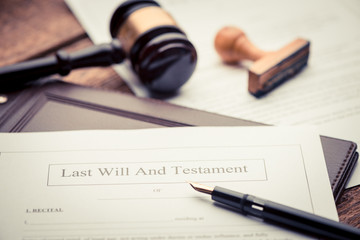What is the Difference Between Formal and Informal Probate?
Middlesex County Landlord-Tenant Lawyer

Disputes between landlords and tenants can escalate quickly, especially when one party believes their legal rights have been violated. Whether you’re a property owner seeking to regain possession of your rental unit or a tenant facing wrongful eviction, understanding your rights is essential. Massachusetts has some of the most tenant-protective laws in the country, but landlords also have enforceable rights. Knowing what those rights are and how they interact with local housing codes, lease agreements, and state statutes can make a significant difference in the outcome of a dispute. If you’re facing a landlord-tenant dispute of any kind, contact a dedicated lawyer from Mark Liam Gannon, Attorney at Law today.
Why Legal Guidance Matters in Landlord-Tenant Disputes
Even straightforward-seeming disputes can quickly grow complex due to the intricate web of regulations that govern rental properties in Massachusetts. Many cases are won or lost not on the facts, but on procedural missteps—such as failing to provide proper notice, using an outdated lease template, or misapplying a statute.
For example, did you know that if a landlord mishandles a security deposit, such as failing to give the required receipt or not placing the deposit in a separate, interest-bearing account, they could owe the tenant three times the deposit amount, plus legal fees? Or that a tenant being evicted for nonpayment of rent may still avoid eviction by paying the full amount due, even after the case is filed, under the “right to cure” provision?
Tenants and landlords often assume they understand their rights based on informal advice or outdated online resources. Unfortunately, this can lead to costly mistakes. A qualified attorney can help you assess your situation, explain your options clearly, and take effective steps to protect your interests.
In addition, the Massachusetts housing court system can be intimidating. It operates under its own procedures and expectations, and judges take compliance with those procedures seriously. Having an experienced landlord-tenant lawyer on your side ensures that filings, arguments, and courtroom behavior are all handled properly.
If you are a landlord, timely legal advice can prevent future disputes, protect your investments, and keep your properties in compliance with the law. For tenants, legal support may mean the difference between losing your home and maintaining your right to safe and fair housing.
Common Types of Landlord-Tenant Disputes in Massachusetts
Legal conflicts between landlords and tenants usually fall into a few predictable categories, although each situation has its own unique details. Understanding the most common disputes can help you recognize when you may need legal guidance.
- Evictions (Summary Process): One of the most common landlord-tenant issues in Middlesex County is eviction. Massachusetts law requires landlords to follow a strict legal process when seeking to remove a tenant. This includes proper notice, adherence to deadlines, and, in most cases, a court hearing. Tenants have the right to contest an eviction, especially if it’s based on retaliatory motives, discrimination, or procedural errors. A lawyer can evaluate the validity of an eviction and ensure that your rights are protected at every stage.
- Nonpayment of Rent: When tenants fail to pay rent, landlords often take legal action. However, there are rules about how and when a landlord can demand payment or pursue eviction. Tenants may have valid defenses, such as uninhabitable living conditions or illegal lease provisions. On the other hand, landlords need to ensure that their demand notices comply with Massachusetts General Laws, Chapter 186 and Chapter 239.
- Security Deposit Disputes: Massachusetts imposes specific requirements on how landlords handle security deposits, including how funds must be stored, when interest must be paid, and what conditions must be met before deductions can be made. Violations can result in triple damages and attorney’s fees, even for relatively minor infractions. These disputes often arise when tenants move out and disagree with deductions for cleaning, damage, or unpaid rent.
- Repairs and Habitability Issues: Tenants have the right to a habitable living space under the Massachusetts State Sanitary Code. If a landlord fails to make essential repairs, such as fixing broken plumbing, heating, or pest infestations, a tenant may have several legal remedies available, including withholding rent, making repairs and deducting the cost, or pursuing legal action.
- Lease Violations: Both tenants and landlords can violate lease terms. Examples include unauthorized subletting, exceeding occupancy limits, or violating noise or pet policies. Whether you’re seeking enforcement of lease terms or defending against accusations of a violation, legal advice is crucial.
Legal Representation for Both Landlords and Tenants
At Mark Liam Gannon, Attorney at Law, we represent both landlords and tenants, which gives us a balanced perspective on how disputes unfold. This dual-sided experience allows us to anticipate the opposing party’s arguments and develop strategies accordingly.
We help property owners draft legally sound lease agreements, provide guidance on compliance with state and local housing regulations, and represent landlords in eviction proceedings. We also assist with recovering unpaid rent, handling tenant property left behind after move-out, and navigating claims of discrimination or retaliation.
If you’re a renter facing eviction or other legal action, we work to protect your rights and housing stability. We can help you challenge improper evictions, recover wrongfully withheld security deposits, and pursue damages for unsafe living conditions. If you’re being harassed by a landlord or denied basic repairs, we can intervene to stop the behavior and seek compensation where appropriate.
Sometimes, these disputes can be resolved without going to court. Mediation or negotiation can be effective tools, particularly when both parties are open to a mutually agreeable resolution. In other cases, litigation becomes necessary. We are fully prepared to represent your interests before housing courts and to advocate for you with precision and professionalism.
Contact a Massachusetts Landlord-Tenant Lawyer Today
If you’re facing a dispute in Middlesex County or simply need guidance before problems arise, contact our office today to schedule a consultation. Let us provide the clarity and advocacy you need to move forward confidently.
© 2026 Mark Liam Gannon, Attorney at Law.
All rights reserved. Attorney advertising.


